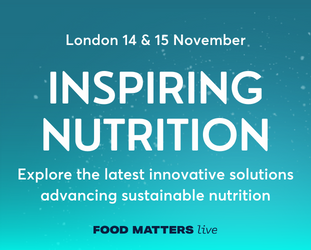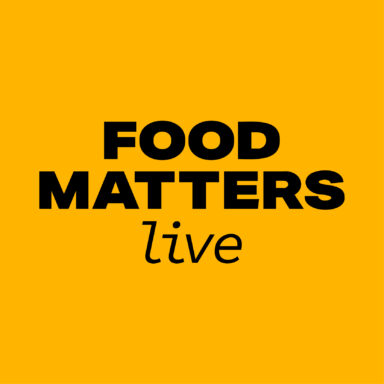Food nutrition courses you can expect in the UK

Studying food nutrition courses enables learners to obtain a solid, foundational understanding of the core principles of human nutrition.
Students on these courses can expect a comprehensive curriculum which not only covers the essential biochemical, physiological, and behavioural studies of nutrition, but also provides a core understanding of food science and health.
Learning will typically involve taking part in lectures, practical laboratory sessions, and research assignments to be completed individually – helping students to build their own independent learning skills to support them throughout their food nutrition course.
What can you expect from a food and nutrition course in the UK?
A wide rsnge of BSc and MSc food nutrition courses are available in the UK which enable students to gain the understanding they need for a successful career in nutrition, food science, or public health.
The following food nutrition courses involve a wide range of assessment methods to determine your final grade. These include written reports, presentations, team-based projects, exams, and dissertations.
BSc (Hons) Nutrition
Offering students a comprehensive overview of the research and studies which form the basis of human nutrition, this undergraduate food nutrition course helps learners to understand the complex relationship between diet and health.
During their time on this course, students will learn about the composition and function of various nutrients and their effect on the body and the mind, as well as the critical role nutrition plays in the prevention of disease and the promotion of good health.
Core modules include:
- Anatomy and physiology
- Biochemistry and chemical science
- Cell biology
- Food science and nutrition
- Food sustainability
- Nutrition and health
- Food manufacturing and processing
- Food perception and product design
- Food safety and microbiology
- Food science and chemistry
- Human metabolism and clinical biochemistry
- Life course and health
- Clinical nutrition and dietetics
- Food product development
- Sports nutrition and physiology
BSc (Hons) Dietetics
The ideal food nutrition course designed for those who want to become registered dietitians, providing students with fundamental scientific and clinical knowledge on nutrition.
Learners will also have the opportunity to explore the practical skills required for proper dietetic practice through hands-on experiences and supervised clinical placements within a variety of healthcare settings.
Core modules include:
- Nutritional biochemistry
- Physiology and genetics
- Human nutrition, food studies and the life cycle
- Psychosocial aspects of patient-centred care
- Nutritional epidemiology & public health nutrition
- Pathophysiology
- Metabolism and pharmacology
- Metabolism and immunology
- Dietetics in practice
- Leadership roles for sustainability
BSc (Hons) Food Science and Nutrition
This undergraduate food nutrition course combines the principles of food science with the fundamentals of nutrition, to enable students to discover the intrinsic link between the two and how this affects our daily lives and our food choices.
Not only will they focus on the development of nutritious and safe food products, but students will also learn about what goes on behind the scenes in the food industry – including food processing, preservation, quality control, and the nutritional properties of various ingredients.
Core modules include:
- Biochemistry
- Cell biology
- Food science and nutrition
- Principles of nutrition and health
- Biochemistry: building blocks of life
- Food microbiology
- Food science: perception, processing and preservation
- Human nutrition
- Nutritional physiology & metabolism
- Food analysis and quality control
- New product development
- Food: chemistry, functionality and health effects
- Food security
- Food technology and safety
BSc (Hons) Nutritional Sciences
This is an undergraduate food nutrition course which offers students the chance to obtain a solid foundational understanding of nutrition – specifically the biological and chemical areas of this field.
During their time on this food nutrition course, students will discover the role of nutrients in human health, exploring the impact different diets can have, and how poor eating can increase the risk of developing certain diseases.
Core modules include:
- Cell biology and genetics
- Biochemistry
- Anatomy and physiology
- Nutrition
- Food science
- Human metabolism
- Nutrition through the lifecycle
- Analytical and food chemistry
- Food microbiology
- Product development and sensory analysis
- Food and nutrition – policy and issues
- Food quality and safety
- Food processing and preservation
- Investigative sport and exercise nutrition
- Clinical nutrition
MSc Human Nutrition
This postgraduate food nutrition course equips students with advanced knowledge and research skills around human nutrition.
Specifically, students will explore the latest developments in nutritional sciences, developing their own understanding of cutting-edge research to critically evaluate current theories.
Their research findings can then be used to inform their own nutritional practice and policies.
Core modules include:
- Fundamental nutrition
- Sustainable diets
- Nutritional epidemiology
- Nutritional assessment
- Molecular nutrition and biochemistry
- Public health promotion
- Food composition and analysis
MSc Sports and Exercise Nutrition
This highly specialised food and nutrition course enables students to focus on the role nutrition plays in sports performance and recovery.
Equipping students with the knowledge and skills needed for a career in the sports nutrition industry, learning involves the design and implementation of evidence-based nutrition strategies for athletes and active individuals.
This will help learners to gain a deeper understanding of the physiological and metabolic responses to rigorous exercise and training, and how nutrition can be used to gain a competitive advantage.
Core modules include:
- Biochemical basis of sport and exercise nutrition
- Advanced performance nutrition
- Assessment of health and fitness
- Concepts and principles of human nutrition
- Essentials of nutrition and performance
- Nutritional assessment
MSc Clinical Nutrition
This food nutrition course is a specialised postgraduate programme which has the aim of advancing graduates’ knowledge and skills around clinical nutrition.
Enabling students to become clinical nutritionists or healthcare professionals focusing on nutrition, students will explore the role food and drink plays in the prevention and management of various diseases and health conditions – including how evidence-based nutrition interventions can improve the health of patients.
Core modules include:
- Health research
- Principles of nutrition
- Body composition practical
- Nutrition support
- Clinical nutrition and public health
MSc Public Health Nutrition
Providing students with the skills and advanced knowledge required for careers in public health nutrition, this postgraduate programme explores the role nutrition plays in population health – including the management of public health epidemics via government-funded programmes.
During this food nutrition course, students will explore designing, implementing and evaluating various nutrition programmes in use today which work to address public health issues whilst promoting health equity.
Core modules include:
- Science of nutrition for public health
- Psychology of eating behaviour
- Influencing action: a review of public health policy
- Entrepreneurial nutrition – media and business
- Disease prevention: public health nutrition approaches
- Leading and creating organisational health and wellbeing









